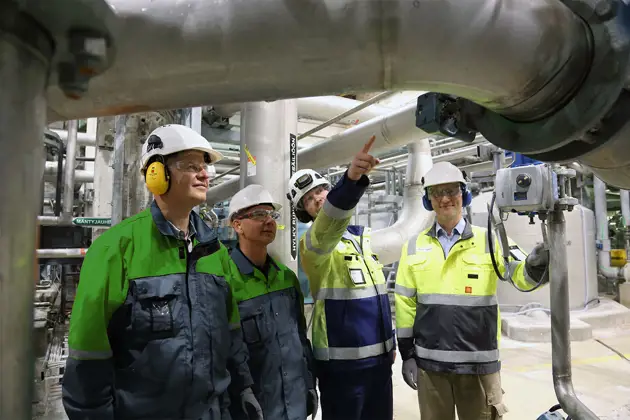Growing concerns over environmental performance, energy efficiency and raw material efficiency have pushed the pulp and paper industry into a state of transformation and renewal. With help from smart valve solutions, the modern bioproduct mill is all about achieving sustainable success.

Environmental efficiency
In addition to improving the environmental performance of the pulp, paper, board and tissue processes, the industry is also leading the way in new innovations aimed at replacing less ecological materials like single-use plastics, textile fabrics and fossil fuels for example. Our offering of industry-leading valves for a variety of process industries also covers the needs and requirements of the manufacturing processes for these new emerging products and innovations.
As global demand and production volumes for pulp and products derived from it continues to grow, the availability of natural resources is being stretched. Making more out of less is quickly becoming the ultimate goal of the industry. Our valves have been designed to help the pulp, paper and bioproducts industry optimize processes to achieve lasting stability, which in turn improves energy and raw material efficiency as well as the predictability of output quality. This means less waste, less water usage, less energy consumed and less reject output. All of these achievable benefits translate into improved environmental performance and improved profitability at the same time. This is the kind of sustainable success we want to be a part of creating together with our customers. This is the reason we continue to innovate and develop new solutions for the industry.
Reducing fugitive emissions
This ethos of making more out of less also extends into the idea of using previously underutilized sidestreams and process waste to create new commercially viable bioproducts. We are seeing green biofuels and a range of biochemicals being refined from wood-based materials. The recycling of odor gases back to process chemicals, and the practice of refining biogases form process waste is also already a reality at many mills. Environmental concerns are a megatrend pushing technological development, especially regarding emissions. The correct selection and sizing of valves can help you achievelower fugitive emissions and comply with regulations.
When we talk about reducing fugitive emissions, it is not just about sustainability. Even though environmental performance is a high priority, minimizing losses due to fugitive emissions is also a matter of money. Lost flow medium means both lost raw materials and smaller end-product yields. The loss of flow medium is also lost energy, as pumps must do extra work to compensate for the leakage. A considerable amount of money can be saved by minimizing emissions.
Proven and tested performance
Every valve that leaves the Valmet Flow Control factory is always tested to ensure they perform as expected. For valves in demanding services, with high pressures and potentially harmful liquid or gas flow media, meeting the customer’s process requirements as well as the limitations set by local and international legislation and certification criteria is always a given. By minimizing fugitive emissions, our valves help customers improve on-site health and safety, allowing operations to meet regulatory standards, reduce product losses and ultimately improve the environmental performance over the entire lifecycle of their bioproduct mill.
The text has been updated in April 2022, due to the company name change to Valmet.



